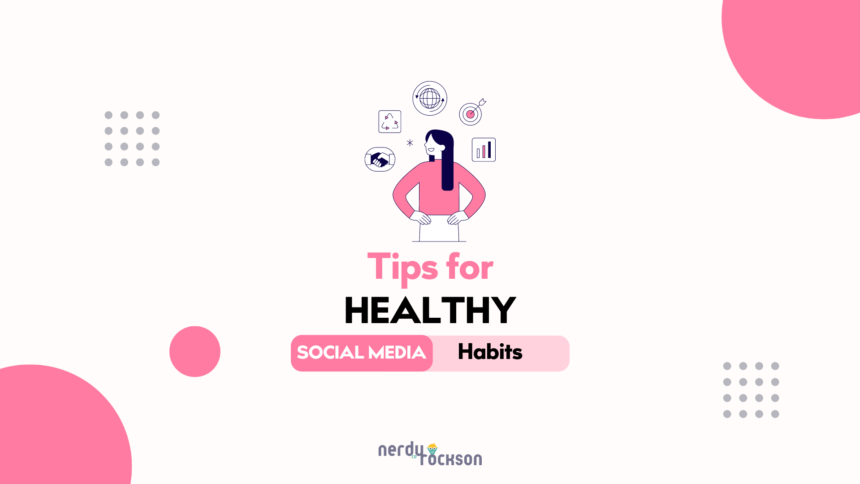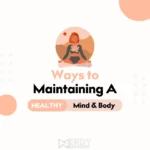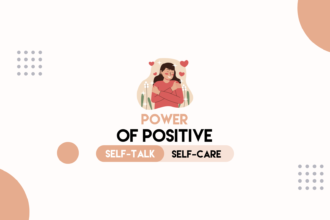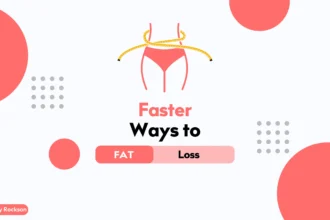In our digitally connected era, developing healthy social media habits becomes more than just an optional skill—it’s a necessity. The pervasive nature of social media means it plays a significant role in our day-to-day lives, whether we’re connecting with friends, reading news, or sharing snapshots of our lives. However, our relationship with social media platforms isn’t always healthy. Misusing or overusing social media can lead to various mental health issues, like anxiety, depression, and low self-esteem. This is why it is essential to understand how to cultivate healthy social media habits.
Almost everything will work again if you unplug it for a few minutes, including you.
Anne Lamott
Developing healthy social media habits not only helps protect your mental health but can also enhance your quality of life. It encourages mindful consumption, fostering a more genuine connection with people, and enabling you to leverage these platforms for personal and professional growth rather than allowing them to consume you. By forming healthier social media habits, we can regain control, making social media work for us, not against us.
- Draw the line: Establish boundaries for social media use, which can prevent it from monopolizing your time and attention.
- Quality not quantity: Foster deep, meaningful connections rather than superficial engagements.
- Mindful consumption: Be aware of the type and amount of content you’re consuming and its effect on your mental and emotional health.
- Digital Detox: Take breaks from social media to recharge and recalibrate your relationship with these platforms.
- Offline Connections: Balance your online engagements with real-world interactions.
The following sections of this article will help you understand these key elements and give you handy tips on how to develop and maintain healthy social media habits effectively.
Impact of Social Media on Mental Health
Despite social media’s ability to foster connections, it can also create a breeding ground for feelings of anxiety and depression. This disconcerting duality makes the need for a balanced digital diet all the more crucial. By staying conscious of the potential emotional effect of other people’s posts on us, we can better navigate this online landscape.
- Excessive use of social media can lead to heightened levels of stress and anxiety.
- Constant exposure to idealized representations of others’ lives may contribute to feelings of inadequacy and low self-esteem.
- Social media can trigger the fear of missing out (FOMO), leading to continual checking of apps and comparisons with others, further contributing to mental discomfort.
- Being a victim of cyberbullying on social media platforms can have severe psychological consequences, including increased risk of depression, suicidal ideation, and anxiety.
- Prolonged use of social media, particularly before bedtime, may lead to sleep disturbances, which can have debilitating effects on mental health.
- The isolating nature of personalized feed algorithms can reinforce existing beliefs and discourage critical thinking, leading to a skewed perception of reality and potential harm to mental health.
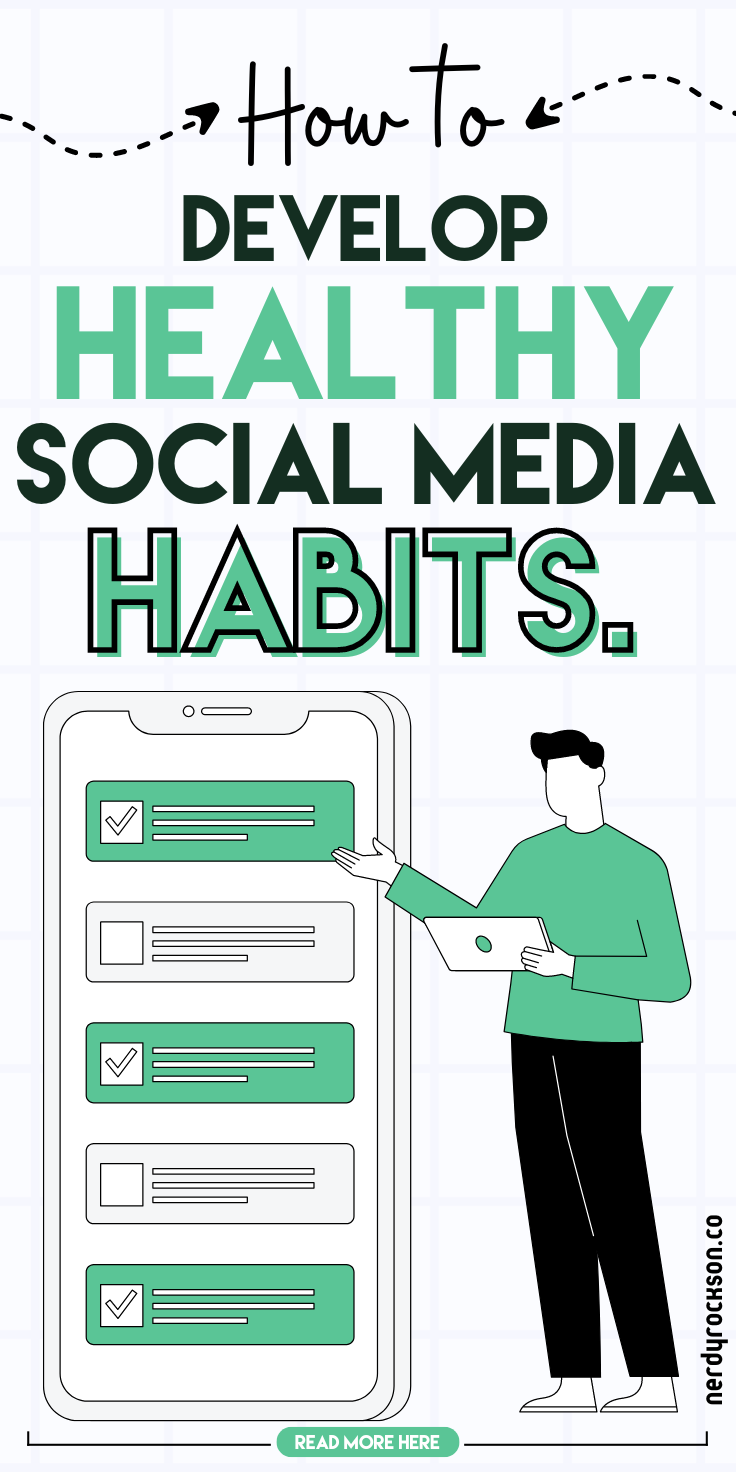
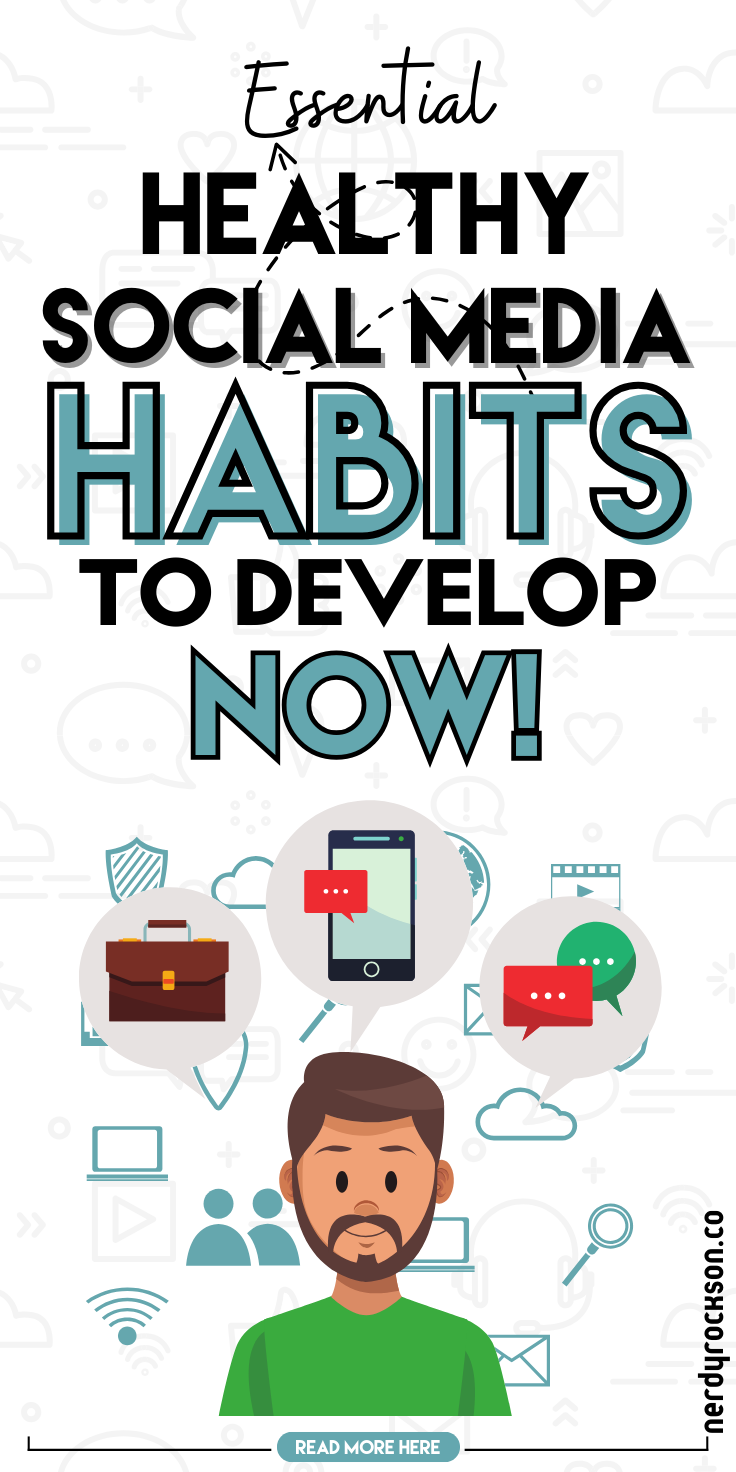
5 Healthy Social Media Habits
Fostering healthy social media habits can play a significant role in enhancing your overall well-being. Building a strategy that promotes balance and intentionality can cultivate a healthier relationship with these platforms. Here are five practical steps towards healthier social media usage that can help you achieve a healthy balance and reduce the potential stress or anxiety that excessive use can contribute to.
1. Set Boundaries
Setting boundaries for your social media use is a vital first step to forming healthy social media habits. This practice can ultimately lead to better mental health and an enhanced ability to appreciate the world outside your screen. The time we spend scrolling and engaging on social media platforms is time we could spend on self-care or interpersonal activities.
You might wonder, how can one implement such limits effectively. A practical starting point is defining specific periods during your day as ‘no social media’ times. This could be during meals, before bedtime, or even a designated hour for reading or exercising. And yes, there’s an app for that! Various applications available for download can assist you in managing your screen time by providing reminders or by automatically turning off your social media platforms after a certain amount of usage.
Remember, the goal isn’t to eliminate social media but to cultivate a healthier relationship with it. The setting of boundaries is just one of many steps towards that aim.
2. Quality Over Quantity
Adopting healthy social media habits calls for focusing on the quality of interactions, not just the quantity. It isn’t about how many posts you like, share, or comment on, but rather the substance and value of those interactions. Engaging meaningfully with content that brings joy, sparks intellectual curiosity, or fosters a sense of community can lead to a more enjoyable and rewarding social media experience.
Such quality interactions can shield you from the noise of endless scrolling and vague, superficial engagement, thereby greatly reducing potential stress and anxiety from overload. Notably, investing in meaningful relations on these platforms contributes to overall digital well-being. After all, social media provides an essential platform for robust dialogues, relationship-building, and knowledge exchange when used conscientiously.
3. Digital Detox
A ‘digital detox’ is an intentional break from digital devices such as smartphones, laptops, or tablets and, most notably, social media platforms. Giving your mind and body a break from the constant stream of information, interruptions, and distractions can be instrumental in creating healthy social media habits.
The health benefits linked with a successful digital detox are numerous. A 2023 study indicated that minimizing social media use to around 30 minutes a day resulted in reduced levels of anxiety, depression, loneliness, and better sleep patterns. By unplugging from our digital landscapes, we tend to feel refreshed, with noticeable improvements in mood and overall well-being. As for anxiety and depression, these subtle yet profound changes are often strong motivators to maintain this healthier balance.
Indulging in a digital detox doesn’t have to be an all-in commitment straight away, though. You could introduce the practice gradually, which can be a part of creating a more mindful, measured approach to your social media consumption. Consider setting achievable goals, like reducing screen time by a particular duration each week, or allocating certain hours of the day as your device-free period.
Setting app notifications to limit usage can be a practical first step. You can also employ the use of digital wellness apps like Freedom that help manage screen time and distractions. This eases you into the process and minimizes the potential feeling of deprivation that could come if you were to cut off all at once.
During the periods of digital detox, developing alternate activities is key. Simple hobbies and interests like reading, cooking, outdoor activities, or even meditation can fill up the time usually consumed by social media scrolling. This could give a sense of fulfillment, enhancing the overall benefits of your detox.
Remember, the significant part of a digital detox is to concentrate on self-care and personal growth. It’s about taking some time to disconnect from the digital world and reconnect with yourself.
4. Mindful Consumption
Imagine your social media platforms as your personal space. You wouldn’t let just anyone into your home, would you? So why allow any kind of content on your feed? Exercising discernment in who you follow and what you expose yourself to is crucial for a positive social media experience. This practice is what we refer to as mindful consumption.
Mindful consumption of social media involves being deliberate about your digital diet. Just as a balanced diet is essential for physical health, a balanced ‘media diet’ is essential for your mental health. Ensure you follow accounts that inspire you, spark joy, and educate you, as opposed to ones that cause stress, anxiety, or self-doubt. This seemingly small step can result in significant changes to the overall tone of your feed.
But why does this matter? The content you consume can greatly impact your mental and emotional state. When scrolling through social media, negative content can leave you feeling inadequate, anxious, or upset, whereas positive content can inspire and uplift you. Your feed should support and encourage your well-being, not subtract from it.
Paying attention to the impact of the content you consume is a key component in creating healthy social media habits. Remember to regularly check in with yourself about how certain posts or accounts make you feel. If it’s more often negative than positive, consider unfollowing, muting, or blocking those accounts. Value your mental health as much as you value your screen time.
5. Offline Connections
Living in a world where we’re always online, it’s easy to forget how important real-life connections are. But don’t worry, healthy social media habits don’t mean shutting out the world. Your offline relationships are just as important as your online ones. And yes, this includes meeting friends and loved ones face-to-face.
There’s something different about catching up with a friend in person rather than over a chat box. The conversation is richer and the bond is deeper. So, while we embrace the online world, let’s not forget to balance it with our offline lives. They both play a role in forming healthy social media habits.
Have you spent quality time with your family lately? Or met a friend for a coffee? What about joining a community club? These activities add a different kind of spark to our lives, a spark that’s hard to find in the world of social media. They also help us to connect on a deeper level, which is good for our overall mental health. Plus, they stop us from relying too much on social media for social interaction.
Think of social media platforms as tools. They’re great for staying connected and sharing with others, but they can’t replace in-person interactions. Finding a balance between online and offline life helps us form healthy social media habits and makes our online experiences more meaningful.
And let’s not forget about the good old-fashioned fun of non-digital activities. Reading a book, going for a bike ride, painting, or going for a walk in nature — these are all great ways to take a break from our screens. They also help keep our minds active and engaged in the real world.
In summary, balancing our online and offline interactions helps to build healthy social media habits. It adds variety to our lives and makes things a bit more authentic. Above all, it shows us how to enjoy the best of both worlds — the digital and the real.
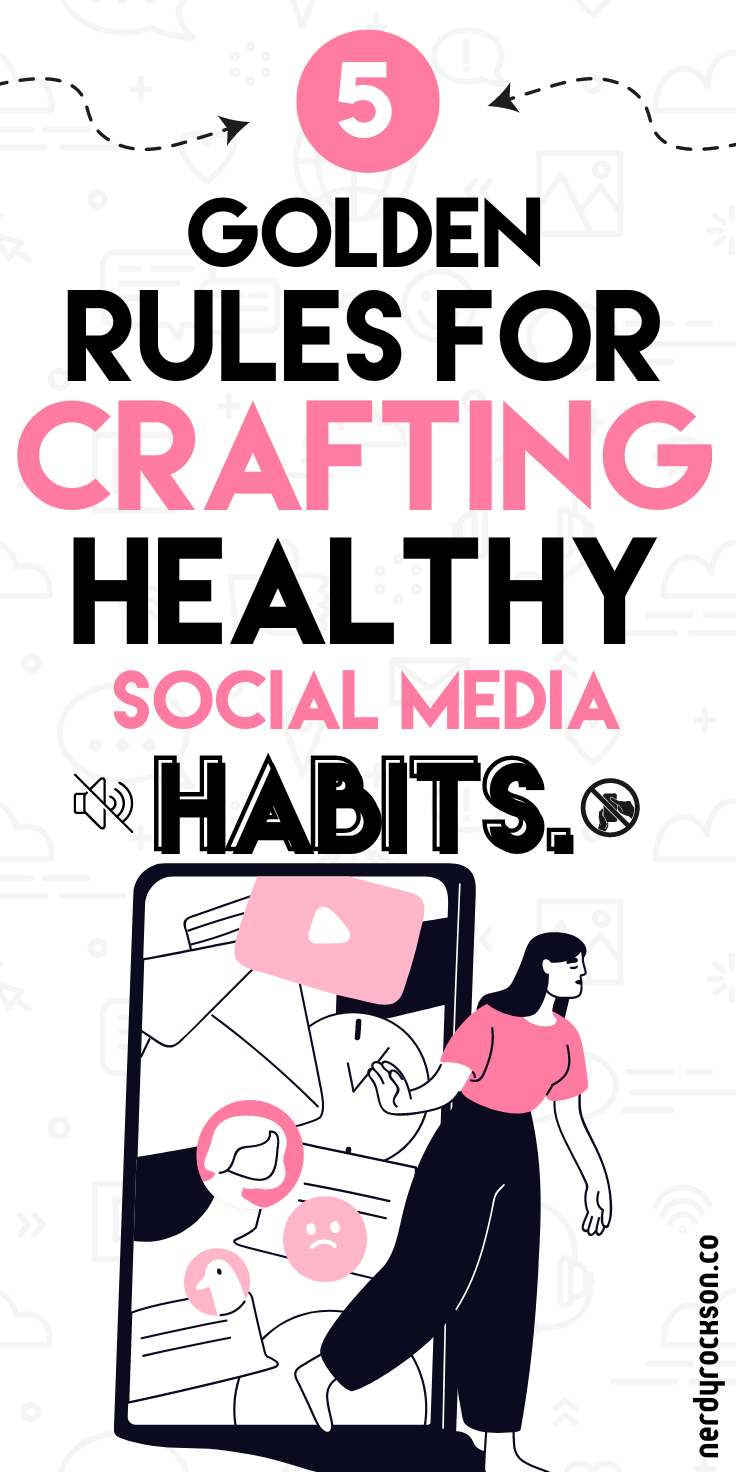
Leveraging Social Media for Personal Growth
Creating healthy social media habits isn’t just about reduction and restriction—it’s also an opportunity to use social platforms as tools for personal development and growth. So, how can you leverage social media for personal growth?
Firstly, it’s all about setting attainable and positive goals. Have a clear purpose for your social media usage. It could be for learning new skills, seeking inspiration, networking, or keeping up with current affairs. As you navigate through the digital world, remember to align your activities with these goals.
Next, consider using tools or apps that can help you stay on track. There are various applications designed to monitor, measure, and manage your social media usage. They can show your daily or weekly usage and even set reminders to ensure you’re following your healthier habits. Accountability is key in maintaining a balanced relationship with social media, making these tools invaluable.
Also, one key aspect of leveraging social media effectively is to create a positive digital environment. This involves curating your feed to include inspiring and educational content, as well as limiting exposure to harmful content. You decide what information you want to consume; use that power wisely.
Social media is like a double-edged sword; on one side, it can negatively impact your mental health if used excessively. On the other side, it’s a great tool for learning, inspiration, and connection. It’s up to you how you want to use it. The main goal is to cultivate an informed, balanced, and healthy approach to social media.
Furthermore, remember that you can always redefine your relationship with social media at any point. As your life changes, your goals may also shift, and it’s crucial to adapt your social media habits accordingly.
In a nutshell, you can leverage social media for personal growth by being intentional with your usage, setting positive and realistic goals, using available tools, cultivating a positive feed, and staying adaptable. Remember, on social media and in life, the power is in your hands—use it to your advantage!
Conclusion
Let’s take a step back and look at what we’ve learned. Social media is a great tool for communicating and connecting with others, but it can also lead to problems like anxiety, depression, and sleep issues if we don’t use it carefully. It’s important to understand how social media affects our daily lives and overall well-being.
The solution is to develop healthy social media habits. Start by setting boundaries on how much time and energy you spend on social media. Focus on meaningful interactions rather than endless scrolling. Make sure to take regular breaks from social media to give yourself a breather and refocus. Be careful of what you view online and don’t let it negatively affect your mindset.
Don’t forget the importance of maintaining real-life connections. Remember, social media is just a tiny part of our diverse and multi-faceted lives. A full and balanced life includes both online and offline interactions. This knowledge is crucial!
Given how integral social media is in our lives, we must manage how we use it. You have the power to create healthier social media habits, leading to a happier and healthier life.
Try to implement these tips into your daily routine and see the difference. Remember, it takes consistent effort to make a change. Good luck on your journey to better social media practices!
